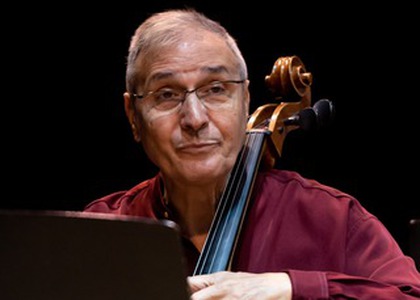> [Archived] Interviews

Interview with cellist Marin Cazacu
The "Violoncellissimo" ensemble celebrates Romania's National Day by organizing two concerts, which are scheduled this week - the first one in Madrid, and the second in Barcelona. Marin Cazacu, the band's founder, is going to tell us more about the event in an interview given to our colleague, Sarah Natsis:
Mr. Marin Cazacu, on the 28th and 29th of November, the "Violoncellissimo" ensemblewill hold two concerts in Spain, in order to celebrate Romania's National Day. How did you choose the cities that would host this year's events?
I have to admit that the"Violoncellissimo" ensemble, which has had performances in most European countries, has never had one in Spain. But here we are - this time, our dream is coming true. We will be performing in Madrid and Barcelona - two musical cities which are brimming with a rich cultural tradition. They alsohave a solid Romanian presence (the Romanian community that is present here is one of the greatest in all Europe). Moreover, since we are going to Madrid and Barcelona, we have adapted the repertoire so that it will also include a piece by one of the greatest cellists of the 19th century, Pablo Casals, who dedicated one of his works to the cello ensemble. And, of course, Romanian music will also be present in Madrid and Barcelona, alongside other works belonging to the universal repertoire, going through every music genre - as we usually do. We are going step-by-step, from classical musicto modern, and to the one that inspires youngsters especially - the jazz and the rock.
You described your ensemble as "an authentic cultural ambassador of our country". Is this a mission for the "Violoncellissimo" ensemble? How do you convey Romania to the foreign audience through music?
During all of our concerts, including the ones we are holding in Spain, we portrayed things as close as we could to the sentiment that a listener may have when listening to such a piece. That is why, the presentation will be in Spanish. I, myself, will be responsible for it. That is how we do it in every country where we perform (I am talking about the languages that we are very well-acquainted with - Italian, French, English, German). In other countries, of course, we usually need help from other people.
What I'm trying to say is that there is going to be direct communication between the ensemble and its audience. At the same time, the energy that we are conveying through our music, andthe emotion,especially, will also be present - since these are the most important things when it comes to music. They will create that link that every audience expects from the performers, which we, in turn, wait from the audience.
Translated by Ramona Adelina-Maria Mănăilescu,
University of Bucharest, Faculty of Foreign Languages and Literatures, MTTLC, year II
Corrected by Silvia Petrescu














